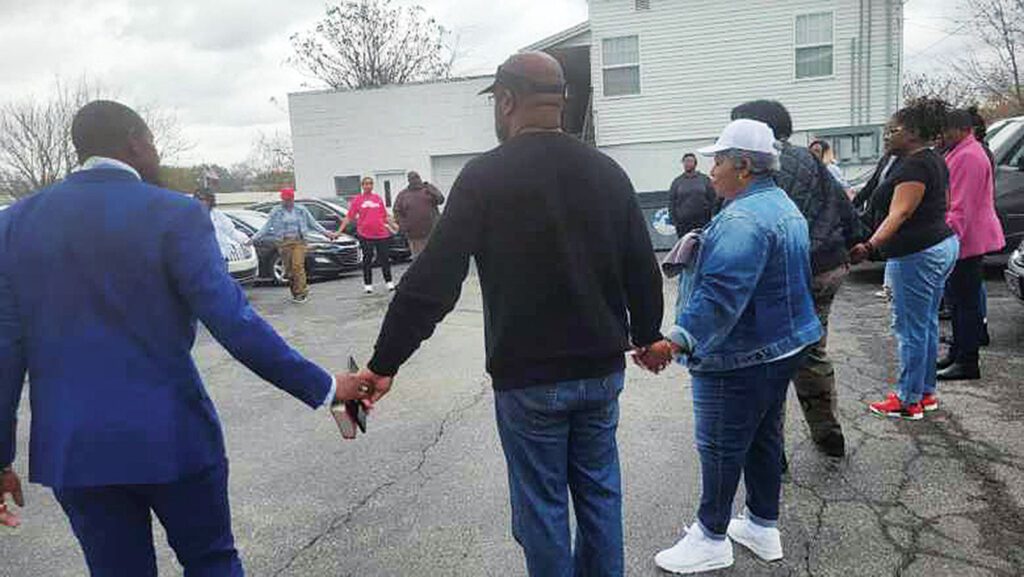
Life expectancy for Americans, including for Black Americans, is on the rise, due to the decline in the prevalence and severity of COVID-19. Nevertheless, a racial gap exists in life expectancy. As of 2022, Black life expectancy was 72.8 years, compared with 77.5 years for white Americans.
While the roots of this shocking fact lie in a legacy of systemic racism that is outside our control, part of the solution lies in an institution that is within our control: the Black church. More and more Black churches are starting, or strengthening, a focus on health. Many are doing so with help from The Balm In Gilead, Inc., a 36-year-old organization whose mission is to equip Black churches to respond to the health crises in their communities.
“The church was founded and rooted as a place for trusted resources and support,” Donna Smith Barksdale, a member of the Fit 4 Faith Wellness Ministry at First Baptist Church in South Richmond, Virginia, says. “Our health ministry was established more than 20 years ago. We help people understand the importance of preventative care, knowing your family history, and getting early screenings.”
In November, Barksdale attended the Healthy Churches 2030 Virtual Conference produced by The Balm In Gilead.
“We created the Healthy Churches 2030 Conference for church members and leaders working to improve the health status of their families and communities,” Dr. Pernessa C. Seele, founder and CEO of The Balm In Gilead, says. “The conference gives them information and tools to foster awareness about healthy behaviors, disease symptoms, treatment innovation and overall wellness.”
Like Barksdale, the Rev. Lisa Lewis Balboa also attended the Healthy Churches 2030 Conference. Balboa is pastor of Freeman Chapel CME Church in Hopkinsville, Kentucky, which runs a health ministry that meets monthly.
“There are so many needs when it comes to our health that we make health awareness a top priority at our chapel,” Balboa says. As an example, following bible study at Freeman Chapel on Wednesday nights, attendees take a 15-minute walk.
What advice does Balboa give to churches considering starting a health ministry?
“Identify a member that is knowledgeable on health issues, network with the community to identify partners with resources, and be committed to the ministry.”
Yvonne Askew, an ICU nurse, also participated in November’s Healthy Churches 2030 conference.
“Our health ministry is essential. Most doctors are in and out in 10 minutes during a visit. Members are left feeling like they need someone to sit down and explain their condition and treatment,” said Askew, who is very involved with health outreach at her church, St. Paul’s AME Zion Church in Buffalo, New York.
She is a certified faith community nurse who meets with members one-on-one before or after service. Additionally, Askew provides health pamphlets in a standing display in the church foyer, which she updates monthly. Furthermore, she trains congregational health promoters in her church and other churches in the Buffalo area.
Darlene Cheek, of Harlem, has attended every Healthy Churches conference since the first event 10 years ago. Cheek was one of the very first staff members of the Balm In Gilead, and today, she is a consultant for the organization.
“Each year, I take the new information and perspectives I hear about during the conference back to my church. I love connecting with people and seeing the ‘light bulb’ moments,” Cheek, who attends St. Paul Baptist Church, says.
“It is extremely gratifying to see churches confront the Black health crises with the help of our organization,” Seele, the Balm In Gilead CEO, says. “Many challenges stand in the way of Black health, but our churches and The Balm In Gilead will continue to make a difference. We are all in this together.”
This story originally appeared at WordInBlack.com.







